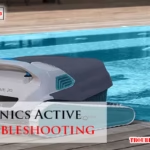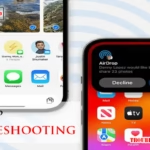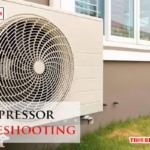Bosch fridge troubleshooting often involves checking power supply, temperature settings, and door seals. Ensure the vents are not blocked.Bosch refrigerators are known for their reliability, but issues can still arise. Common problems include cooling inefficiencies, water leaks, and unusual noises. Regular maintenance and basic troubleshooting can resolve many of these issues. Always start by ensuring the fridge has power and is properly plugged in.
Check the temperature settings to make sure they are correct. Inspect the door seals for any damage or dirt, as these can prevent proper sealing and cooling. Make sure that the vents inside the fridge are not blocked by food items. If problems persist, consulting the user manual or contacting customer support may be necessary.

Common Temperature Issues
Many Bosch fridge owners face temperature issues. These problems can spoil food and cause frustration. Knowing how to troubleshoot these issues is vital. Below are some common temperature problems and how to fix them.
Fridge Not Cooling
If your Bosch fridge is not cooling, it can cause food to spoil quickly. Here are some common reasons:
- Dirty Condenser Coils: Dust and dirt can block airflow. Clean the coils to improve cooling.
- Thermostat Settings: Ensure the thermostat is set correctly. Adjust it to a cooler setting if needed.
- Door Seals: Check the door seals for gaps. Replace them if they are worn out.
- Blocked Vents: Ensure vents inside the fridge are not blocked by food.
Freezer Too Cold
A freezer that is too cold can cause frost buildup. This makes it hard to open drawers. Here are some reasons for this issue:
- Thermostat Settings: The thermostat might be set too low. Adjust it to a warmer setting.
- Defrost Timer: A faulty defrost timer can cause excessive cooling. Replace it if necessary.
- Temperature Sensor: A malfunctioning sensor can cause temperature issues. Check and replace the sensor if needed.
- Airflow Issues: Ensure proper airflow in the freezer. Do not overfill it with food
Water Leakage Problems
Water leakage in your Bosch fridge can be a big problem. It can cause damage to your kitchen floor and food. Understanding the cause is the first step to fixing it.
Water Pooling Inside
Water pooling inside your Bosch fridge can lead to spoiled food. Here are some common reasons and solutions:
- Clogged Defrost Drain: The defrost drain can get clogged with food particles. Clean it with warm water to clear the blockage.
- Damaged Door Seal: A broken door seal allows warm air inside. This causes condensation. Replace the seal to fix the issue.
- Improper Storage: Ensure food containers are sealed. Open containers can release moisture inside the fridge.
Water Dispenser Leaks
Water dispenser leaks are another common issue. These can waste water and create a mess.
- Loose Connections: Check all water line connections. Tighten any loose connections to prevent leaks.
- Faulty Water Valve: The water valve may be defective. Replace it if it’s not working correctly.
- Cracked Water Filter: Inspect the water filter for cracks. Replace it if damaged.
Regular maintenance can help prevent these issues. Clean the defrost drain and check seals regularly.
Ice Maker Malfunctions
Having trouble with your Bosch fridge’s ice maker? This guide covers common issues and solutions. Let’s explore the main problems you might face.
Ice Maker Not Working
If your ice maker is not working, there are a few things to check. First, make sure the ice maker is turned on. Look for the switch and ensure it is in the “on” position.
- Check the water supply line. Ensure it is connected and not kinked.
- Inspect the water filter. A clogged filter can stop the ice maker.
- Verify the temperature settings. The freezer should be set to 0°F (-18°C).
If these steps don’t work, you may need to reset the ice maker. Consult your user manual for specific instructions.
Ice Dispenser Jammed
A jammed ice dispenser is another common issue. Ice can get stuck and block the flow. Here are some steps to fix it:
- Turn off the ice maker and remove the ice bin.
- Check for any clumps of ice. Break them apart carefully.
- Look inside the ice chute. Clear any obstructions you find.
If the dispenser is still jammed, the motor might be the problem. You might need to call a technician for help.
| Problem | Solution |
|---|---|
| Ice maker not turning on | Check the switch and ensure it’s in the “on” position |
| Ice maker not producing ice | Inspect water supply line, filter, and temperature settings |
| Ice dispenser jammed | Remove ice bin, clear ice clumps, and check ice chute |
Unusual Noises
Unusual noises from your Bosch fridge can be worrisome. Identifying these sounds helps in troubleshooting. Here we focus on common noises and their causes.
Humming Sounds
Humming sounds are normal for most fridges. They usually come from the compressor or fans. But, if the humming gets loud, it may indicate a problem.
To address this, follow these steps:
- Check if the fridge is level. An uneven surface can cause noise.
- Ensure there is enough space around the fridge for air circulation.
- Inspect the fan blades for debris or ice buildup.
If the noise persists, you may need professional help.
Rattling Noises
Rattling noises can be more concerning. These sounds usually stem from loose parts or items inside the fridge.
Here are some tips to fix rattling noises:
- Check if any objects are touching the back of the fridge.
- Ensure all shelves and drawers are securely in place.
- Tighten any loose screws or bolts.
If the rattling continues, it might be an issue with the compressor or motor.
| Noise | Possible Cause | Solution |
|---|---|---|
| Humming | Compressor/Fans | Level fridge, clear fan blades |
| Rattling | Loose parts/Items touching | Secure shelves, tighten screws |
Door Seal Issues
The door seal in a Bosch fridge keeps the cold air inside. Door seal issues can lead to energy loss and spoiled food. Learn how to troubleshoot these problems easily.
Seal Not Closing Properly
A seal that doesn’t close properly can cause many issues. Check the seal for dirt or food particles. Clean it with warm, soapy water.
- Inspect for cracks or tears.
- If damaged, consider replacing the seal.
- Ensure the door is aligned correctly.
Frost Build-up
Frost build-up can occur if the door seal is faulty. This can make your fridge work harder.
| Possible Cause | Solution |
|---|---|
| Broken or worn-out seal | Replace the seal |
| Food obstructing the door | Rearrange items inside |
Use these tips to maintain the door seal and ensure your fridge works efficiently. Keep your fridge in top shape with regular checks.
Electrical Problems
Experiencing electrical problems with your Bosch fridge can be frustrating. These issues can disrupt daily routines and spoil food. Understanding the root cause is crucial for quick resolution.
Fridge Not Turning On
If your Bosch fridge won’t turn on, check the power source. Ensure the fridge is properly plugged into a working outlet. Sometimes, a tripped circuit breaker can be the culprit. Reset the breaker and see if the fridge powers on.
| Possible Cause | Solution |
|---|---|
| Power Cord Issues | Inspect and replace if damaged |
| Faulty Outlet | Test with another appliance |
| Tripped Circuit Breaker | Reset the breaker |
If none of these solutions work, there may be internal electrical issues. Contact a professional technician for further diagnosis.
Control Panel Malfunctions
A malfunctioning control panel can lead to various issues. The display might not light up, or buttons might not respond. Start by checking for visible damage or moisture around the control panel.
- Reset the Control Panel: Unplug the fridge for 5 minutes, then plug it back in.
- Check for Error Codes: Refer to the user manual for specific error codes and their meanings.
- Inspect Wiring: Loose or damaged wires can cause malfunctions. Secure or replace them as needed.
If the control panel remains unresponsive, it may need replacement. Always use genuine Bosch parts for replacements to ensure compatibility and longevity.
Lighting Problems
Lighting problems in your Bosch fridge can be frustrating. They might make it hard to find items inside. This section will guide you through common lighting issues and their fixes.
Interior Light Not Working
Is the interior light not turning on? Check these common causes:
- Burnt-out bulb: The bulb might need replacing. Check the bulb type in your fridge manual.
- Door switch: The door switch could be faulty. Press it manually to see if the light turns on.
- Power supply: Ensure the fridge is plugged in. Check the circuit breaker for any tripped switches.
Follow these steps to replace the bulb:
- Unplug the fridge for safety.
- Locate the light cover inside the fridge.
- Remove the cover and take out the old bulb.
- Replace it with a new bulb of the same type.
- Reattach the cover and plug the fridge back in.
Flickering Lights
Flickering lights can be annoying. Here are some potential reasons and solutions:
- Loose bulb: The bulb might not be screwed in tightly. Ensure it is secure.
- Electrical issues: There could be wiring problems. Inspect the wiring or consult a technician.
- Faulty socket: The socket may need replacing. This can be a bit tricky, so consider professional help.
Flickering lights can also indicate a more serious problem. If the above solutions don’t work, it’s best to contact Bosch customer service.
| Problem | Possible Cause | Solution |
|---|---|---|
| Interior Light Not Working | Burnt-out bulb | Replace the bulb |
| Interior Light Not Working | Faulty door switch | Check and replace the switch |
| Flickering Lights | Loose bulb | Tighten the bulb |
| Flickering Lights | Electrical issues | Inspect wiring |
Maintenance Tips
Keeping your Bosch fridge in top condition is essential. Regular maintenance can prevent many common issues. Below are some maintenance tips to help you.
Regular Cleaning
Regular cleaning is essential for your Bosch fridge. Clean the interior and exterior frequently. Use a mild detergent and a soft cloth. Avoid harsh chemicals. Clean the shelves, drawers, and door seals.
A clean fridge works more efficiently. It also reduces the risk of bad odors. Follow these steps:
- Unplug the fridge before cleaning.
- Remove all food items.
- Take out removable parts and wash them.
- Wipe down the interior surfaces.
- Dry everything thoroughly before reassembling.
Replacing Filters
Replacing filters is another key maintenance task. Bosch fridges often have water and air filters. These filters need regular replacement.
Check the user manual for the recommended schedule. Typically, replace water filters every 6 months. Air filters may need replacement every 12 months. Follow these steps for filter replacement:
- Locate the filter compartment.
- Remove the old filter.
- Insert the new filter.
- Follow any reset instructions provided in the manual.
Regular cleaning and replacing filters keep your fridge running smoothly. These simple tasks can prevent many common issues. Your Bosch fridge will stay in great shape with proper maintenance.
Frequently Asked Questions
Why Is My Bosch Refrigerator Not Cooling?
Your Bosch refrigerator might not be cooling due to dirty condenser coils, a faulty thermostat, or a malfunctioning compressor. Check for blocked vents or damaged door seals. Ensure the temperature settings are correct. If the problem persists, contact a professional technician for further diagnosis and repair.
How Do I Reset My Bosch Refrigerator?
To reset your Bosch refrigerator, unplug it for 5 minutes, then plug it back in. This should reset the system.
What Is The Most Common Fridge Failure?
The most common fridge failure is a malfunctioning compressor. This component circulates refrigerant and maintains the fridge’s temperature.
Why Is My Bosch Refrigerator Not Turning On?
Your Bosch refrigerator might not turn on due to a tripped circuit breaker, faulty power cord, or a defective control board. Check power supply and connections first.
How To Reset Bosch Fridge?
Unplug for 5 minutes, then reconnect. Check manual for specific reset instructions.
Conclusion
A Bosch fridge can encounter various issues, but troubleshooting them is often straightforward. Regular maintenance and timely repairs ensure longevity. Always consult the user manual for specific guidance. If problems persist, seek professional help. Keeping your Bosch fridge in top condition ensures optimal performance and efficiency.
Proper care can extend its lifespan significantly.






